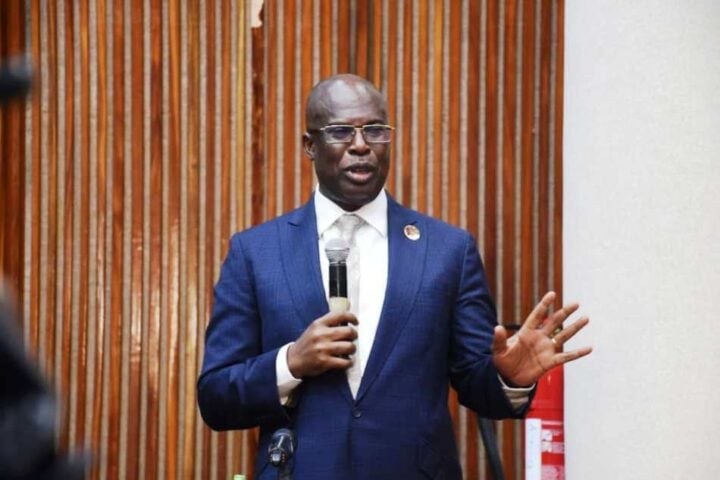A federal high court in Abuja has acquitted Shamsudeen, son of Bala Mohammed, Bauchi state governor, of fraud allegations.
Shamsudeen was first arraigned in November 2016 on a 15-count charge bordering on conspiracy and intentional failure to declare his assets.
He was arraigned alongside Bird Trust Agro Allied Limited, Intertrans Global Logistics Limited, Diakin Telecommunications Limited, and Bal-Vac Mining Nigeria Limited.
The charge was later amended to 20 counts.
Advertisement
On December 14, 2021, the court partially sustained a no-case submission filed by the defendants and they were acquitted on counts 1, 2, 3, 4, 5, 6, 7, 8, 9, 10 and 20.
However, Nnamdi Dimgba, the presiding judge, directed Shamsudeen to open his defence on the remaining counts.
The EFCC, in the charge, raised three major issues.
Advertisement
The commission said the defendant omitted to include in his assets declaration form, bank accounts which he maintains with Standard Chartered Bank (SCB) in naira, pounds sterling, euro and United States dollar currencies.
The EFCC also said the defendant forged some documents or caused some forged documents to be used in dealing with some property as if they emanated from some named companies or persons.
Another issue raised by the anti-graft agency was that the defendant allegedly disguised himself as Isa Adamu on the forged documents, and took possession of a fraudulent document through which he transferred some property to himself.
But the defendant had argued that he was in a state of shock when the EFCC showed up at his house in June 2016.
Advertisement
He also claimed that the shock made him forget to include the said accounts when he was given the asset declaration form to fill, adding that the accounts were not active and that his wife has been the one in control of the accounts since they got married in 2011.
The defendant said he had no reason to hide the accounts since there were no substantial amounts in them, nor were they used for any fraudulent transaction.
In his ruling, the judge held that the prosecution failed to prove its case against the defendant.
He held that the commission “could have led evidence to show that the transaction alerts were being received by the defendant and no one else up until the very period on the 9/06/16 that he completed Exhibit SB3(1-25), and perhaps even soon thereafter”.
Advertisement
“This includes evidence of the phone number and or email address on which alerts on those transactions that the prosecution set out elaborately and meticulously in their written address were actually being received,” the judge said.
“Because if these transaction alerts were actually being received in phone numbers or email addresses under the physical control of the defendant, it will be difficult for the defendant to convince the court that he omitted those accounts because of forgetfulness occasioned by shock and state of disarray caused by his abrupt and sudden apprehension by the EFCC.
Advertisement
“Reasonable doubts do exist in the prosecution’s case as made out in the body of this opinion. In a case of this nature, the evidence adduced by the prosecution must be so strong as to leave only a remote possibility in favour of the accused.
“As the law commands, I am bound to resolve the doubts in favour of the defence and I so resolve them.
Advertisement
“In consequence, I find the defendant as being not guilty as charged on all counts 11 to 19, and consequently discharge and acquit the defendant of all counts as listed in the charge.”
EFCC TO RETURN MONIES SEIZED FROM DEFENDANT
Advertisement
The judge also ordered the EFCC to return to the defendant, $60,000 and N580,000 seized from his apartment.
The court held that the monies were neither tendered before it nor formed any part of the charge, adding that the prosecution did not deny that it confiscated the monies and had since retained it in its custody.
Consequently, the court, relying on section 337 (1) of the Administration of Criminal Justice Act, 2015, ordered the EFCC to return the monies to the defendant.
Add a comment






